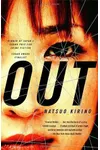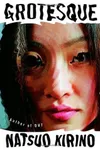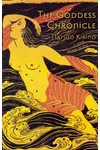Picture a Japanese storyteller who turned the crime fiction world upside down with gritty, psychological tales—meet Natsuo Kirino! Born Mariko Hashioka, this literary trailblazer, writing under her pen name, has captivated readers with novels like Out, blending dark suspense with sharp social commentary. Her stories dive deep into the human psyche, especially the lives of women navigating Japan’s societal pressures, earning her the title 'queen of Japanese crime.' Ready to explore her thrilling world?
Kirino’s unique voice emerged from a life of varied experiences, leading to a career that redefined detective fiction. With awards like the Mystery Writers of Japan Award and a global fanbase, she’s a must-read for anyone craving stories that are as thought-provoking as they are chilling.
The Making of Natsuo Kirino
Born on October 7, 1951, in Kanazawa, Ishikawa Prefecture, Natsuo Kirino grew up as the middle child of three, with an architect father who moved the family across cities like Sendai and Sapporo before settling in Tokyo. Her curiosity and vivid imagination shone early, hinting at her future as a writer. After earning a law degree from Seikei University in 1974, Kirino explored various jobs, from working at a movie theater to marketing, before finding her calling. In her late twenties, she tried romance novels but soon pivoted to crime fiction, drawn to its psychological depth. By her forties, she was a literary star.
Natsuo Kirino’s Unforgettable Stories
Kirino’s novels are a masterclass in 'feminist noir,' blending hardboiled crime with raw, realistic portrayals of women. Her breakthrough, Out (1997), follows four women working night shifts at a bento factory who get entangled in a murder cover-up. This gripping tale, which won the Mystery Writers of Japan Award and was an Edgar Award finalist, explores gender oppression and desperation with unflinching honesty. Grotesque (2003) dives into the lives of two murdered Tokyo sex workers, tackling bullying and societal pressures through a layered narrative.
Real World (2003) offers a lighter but still poignant look at high school students caught in a murder’s aftermath, reflecting teenage alienation. Kirino’s style—described as 'flat' yet laced with 'strange lyricism'—creates an eerie, immersive atmosphere. Her female protagonists, like detective Miro Murano, challenge stereotypes, often playing both victim and hero, inviting readers to question societal norms and human nature.
Kirino’s focus on women’s struggles sets her apart. She crafts characters who defy Japan’s patriarchal expectations, revealing the power of the 'weaker sex.' Her realistic prose puts readers inside her characters’ minds, making their extreme actions feel hauntingly plausible. This commitment to authenticity has made her a standout in a male-dominated genre.
Why Natsuo Kirino Matters
Natsuo Kirino’s impact on crime fiction is undeniable. By centering women’s stories, she’s reshaped Japanese literature, giving voice to those often sidelined in traditional narratives. Her novels, translated into English and beyond, have inspired readers worldwide to rethink gender roles and societal pressures. Awards like the Naoki Prize for Soft Cheeks (1999) and the Edogawa Rampo Prize for her debut Rain Falling on My Face (1993) highlight her literary prowess. Kirino’s work also bridges cultures, offering Western readers a window into Japan’s gritty underbelly.
Her influence extends to film adaptations and a growing fanbase, with readers praising her for making 'regular middle-aged women' relatable and complex. Kirino’s legacy lies in her fearless exploration of human darkness, proving that crime fiction can be both thrilling and profoundly meaningful.
- Born: October 7, 1951, Kanazawa, Japan
- Pen Name: Natsuo Kirino (Mariko Hashioka)
- Key Works: Out, Grotesque, Real World, Soft Cheeks
- Awards: Mystery Writers of Japan Award, Naoki Prize, Edogawa Rampo Prize
Snag Out and dive into Natsuo Kirino’s thrilling feminist noir—you won’t look at crime fiction the same way again!




